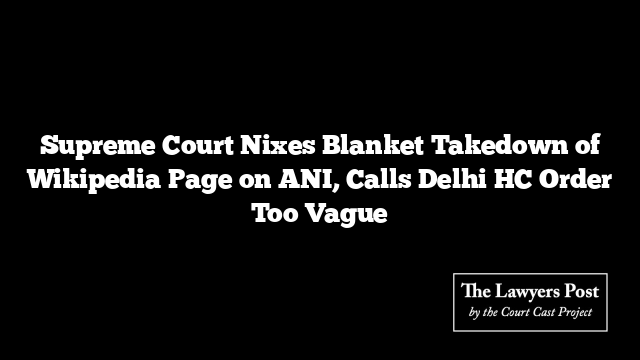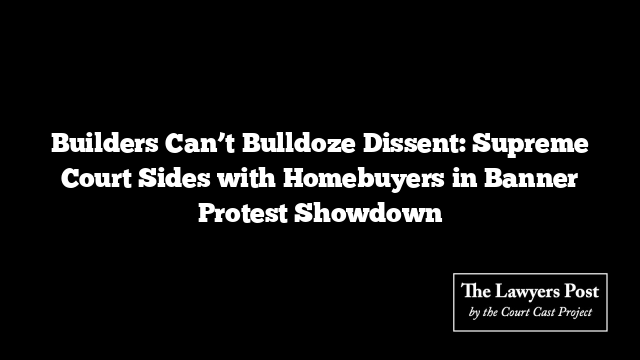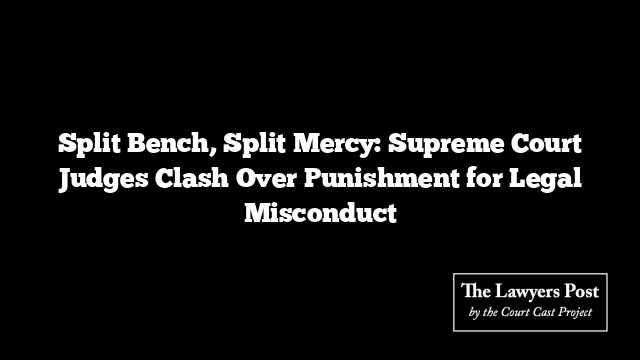In a strong rebuke to an overbroad censorship attempt, the Supreme Court has overturned a Delhi High Court directive that ordered the wholesale scrubbing of allegedly defamatory content from the Wikipedia page of news agency ANI. The top court made it clear: takedown orders need precision, not sweeping generalizations.
A bench comprising Justices Abhay S. Oka and Ujjal Bhuyan took issue with the High Court’s earlier instruction to remove “all false, misleading, and defamatory content,” calling it far too general to enforce. Instead, the court suggested ANI can return to the Delhi High Court—but this time with a scalpel, not a sledgehammer: specific content must be identified for any future injunction.
The ruling came in response to a challenge from the Wikimedia Foundation, which operates Wikipedia, after the Delhi High Court issued an interim order in ANI’s defamation suit that directed takedowns and restricted editing on ANI’s Wikipedia page. Wikimedia had objected to both the content-related orders and the demand to unmask anonymous editors behind the page.
The original dispute stems from ANI’s claim that its Wikipedia entry accused it of acting as a propaganda arm for the central government and recycling fake news—allegations it says are not only untrue but deeply damaging. ANI is seeking ₹2 crore in damages and permanent deletion of the content.
The controversy intensified after Justice Subramonium Prasad ruled in ANI’s favor earlier this month, saying Wikipedia couldn’t hide behind the “neutral intermediary” label and must take responsibility for defamatory material. He even ordered the removal of page protection that had locked out further edits, suggesting Wikipedia had frozen the content in a way that prejudiced ANI.
The case ballooned further when ANI took exception to a second Wikipedia page chronicling the litigation itself, claiming it misrepresented courtroom proceedings. That too was flagged in a contempt plea, leading the Delhi High Court to express concern over the portrayal of a judge as threatening to “shut down Wikipedia.”
But the Supreme Court took a far more restrained view. On April 9, while reserving judgment on the second page’s takedown, the bench remarked that any content removal based on contempt must first meet a basic threshold: a clear and reasoned finding that it actually qualifies as contempt.
With today’s decision, the top court has drawn a firm line in the digital sand. Defamation claims may be real—but takedown demands must be sharp, specific, and legally sound. Broad-brush censorship, it seems, won’t cut it.





